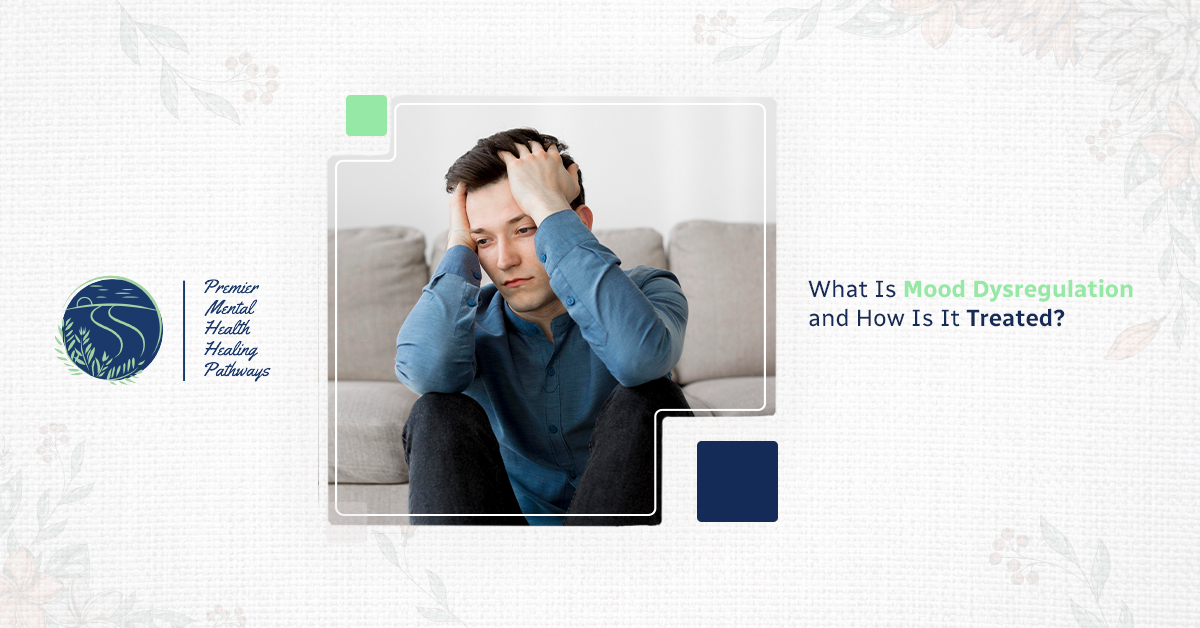Your feelings recently have been all over the place lately. One moment you are quite well; the next you are losing it over something not worth much.
When you yell at someone, you feel terrible two seconds later.
Also, you cry and cannot even articulate why. Although nothing bad happened, you cannot stop. And then you’re mortified because you know you’re overreacting.
This is mood dysregulation. And yes, a lot of people deal with it.
What Is Mood Dysregulation?
Your feelings just don’t align with actual circumstances. They’re way too big. They come out of nowhere, or they stick around forever.
Here’s what it looks like:
- You go from perfectly calm to furious or sobbing in about three seconds
- Tiny annoyances feel catastrophic
- Once something upsets you, you’re stuck there for hours
- People look genuinely confused when you react
- You’re completely drained from riding this emotional rollercoaster
This isn’t you being dramatic or fragile. Your brain just processes feelings differently and needs a hand figuring it out.
What Causes It?
Usually it’s a few things. Mood dysregulation tends to show up with:
- ADHD
- Anxiety
- Depression
- Bipolar disorder
- Borderline personality disorder
- Trauma or abuse you’ve been through
Your brain chemistry matters here too. When those mood-regulating chemicals get wonky, everything becomes harder to handle.
Not sleeping makes it ten times worse. So does constant stress or major upheaval in your life.
How Treatment Helps
Here’s the thing: treatment actually works. Most people feel way better once they get some help.
Therapy
Therapy hands you actual tools for when emotions go haywire. You’ll learn:
- What specific things trigger you
- How to talk yourself down when you’re spiraling
- Different ways to interpret what’s happening that don’t send you off the deep end
- Real strategies you can pull out in the moment
Medication
Sometimes your brain needs chemical backup.
Not everybody needs pills. But for some folks, medication is the missing piece that makes everything click.
Daily Habits
The boring basics actually do something:
- Same bedtime every night
- Eating at regular times
- Moving your body, even just a walk
- Dialing back the caffeine and booze
- Having some structure to your day
Won’t cure you on their own. But they give your brain a fighting chance to regulate itself.
Getting the Right Help
- Look for someone who actually listens to you
- Who asks real questions and cares about what you’re going through
- Not someone rushing you out the door or acting like you’re wasting their time
Treatment is not immediate. You will, nevertheless, observe changes. You will stop yourself before you explode at somebody. The bad stretches won’t drag on indefinitely.
Things start feeling more doable.
Closing Thoughts
We may assist if your feelings are ruining your relationships, undermining your job, or merely wearing you out.
We truly take time with you at Premier Mental Health Healing Pathways. Just listening without any judgement at all.
Not some fantastical version, we will create something that fits your actual life.
You don’t have to white-knuckle through this anymore. Call us at 720-525-5231.
FAQs
Is this bipolar disorder?
Could be. Could be something else entirely. Mood dysregulation happens with bipolar, but it also happens with a bunch of other stuff.
You need someone to actually look at what’s going on with you specifically.
How long does treatment take?
Varies wildly. Some people notice a difference in a few weeks. Others take months. But you will start feeling different.
Do kids get mood dysregulation?
Yep. Kids and teenagers struggle with this too. Catching it early tends to help a lot in the long run.






No comment